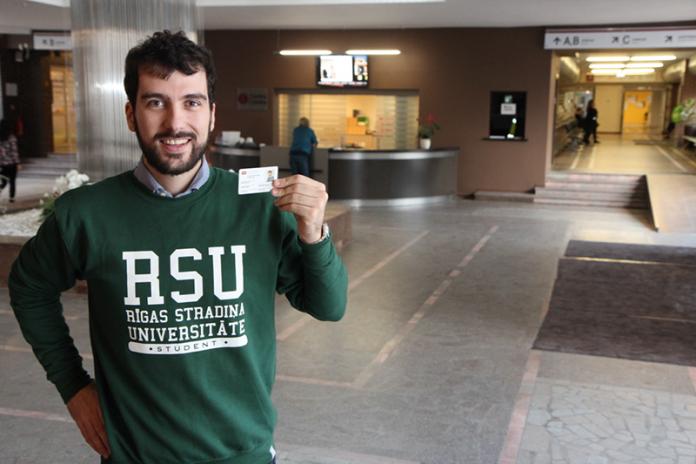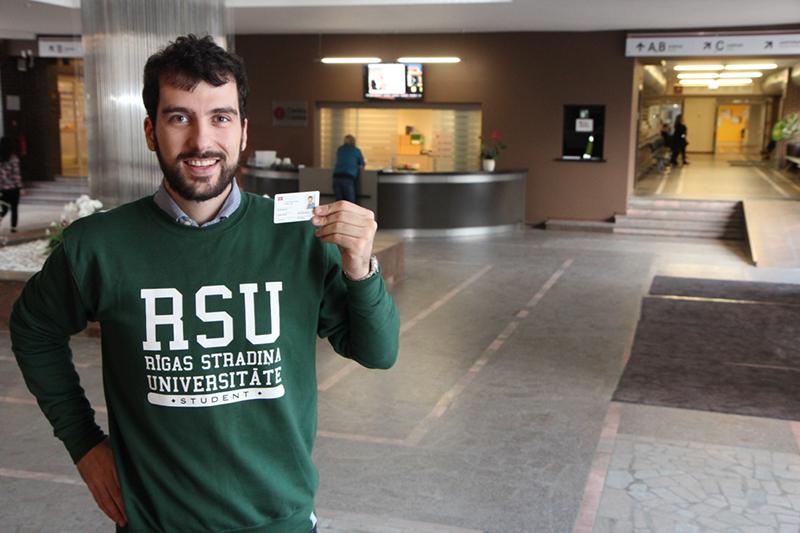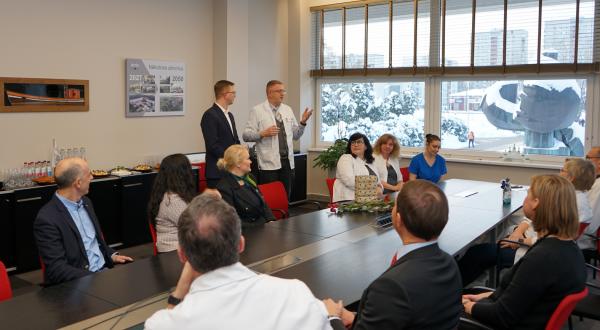You have to treat the patient, not just the disease
As part of our themed series of interviews “Doctor – it is a mission” we offer an interview with an interesting personality, mission-focused young ophthalmologist, RSU resident and doctoral student Davide Borroni. He comes from Italy where he has graduated from the University of Insubria, yet for over three years his everyday life has been closely associated with Rīga. Notwithstanding the busy schedule, he has launched an international charity project in Nepal, so we asked him to share his path of choosing the profession, his impressions about Latvia and his Nepal experience.
What was your motive for choosing to pursue a medical career?
Literally speaking, you generally do not choose to become a doctor – at some point you realise that you were born to be one. I have made every effort to be anything but a doctor – a physicist, a real estate broker, a carpenter, an engineer, doing everything that could make me happy. Since I come from a wonderful place next to Milan – Stresa – that is located near a beautiful lake, I even thought of building a wooden sailboat. Thus at some point you commence a dialogue with yourself, making you answer essential questions and you realise that none of these occupations will make you free, giving the freedom of being yourself, the freedom of being happy. My feeling of freedom is captured in the moments of appreciation by people whom I have treated and cared for, this is priceless.
Why did you choose Latvia (RSU)?
This is a complex issue. I departed Italy during the crisis of 2013. It was tough, I could not find a place in residency for almost 24 months and decided to go to Brno, however the bureaucracy was excessively cumbersome and I resolved to wait for life to throw an opportunity to be caught. I learned about Rīga and decided to take the chance. It was one of the best choices I have made so far. The system is utterly different and opportunities are comparatively extensive. Another major thing is – I am given the opportunity to make changes. So basically, I chose Rīga to try to take the option of improving myself.
What do you want to accomplish as a doctor?
Accomplish is a strange verb in this context, I would rather use 'to do'. I welcome challenges. Most of my patients look surprised when I approach them with the question, 'How are you?' A doctor, definitely, has to treat diseases, thus he also has to care for patients - empathy is the key. Someone far more famous than me once said, “You treat a disease, you win, you lose. You treat a person, I guarantee you, you'll win, no matter what the outcome.” I would like to see more happy people, fight blindness of mind and eyes.
What are your specific goals in medicine?
I work with lasers and corneal disease with a slight touch of genetics involved. My goal is the hope. First of all the hope that the Italian football team will win the Champion's League once again – this is a vague hope. Another, stronger hope is to facilitate diagnostics of eye diseases, putting microbiological 'culture' in the background and releasing the possibilities of genetics-guided medicine. I think that my goal is to make medicine more accurate and predictable, after football, of course.
What qualities and skills are needed for a person to become a doctor?
It is not that hard to get a diploma in medicine, sit in classes for six years and read piles of scientific literature. It gets more complicated if you want to become a medical practitioner. The ability of uncovering the true happiness of what you do is an essential aspect. If you are happy because you have made someone see better, you should join me, if you are happy on a boat in the middle of nowhere, come with me anyway, it can get only better. Although it may resemble happiness, money does not really make you happy.
You have participated in a charity project in Nepal. What was your motivation to get involved in this project?
Nepal is an amazing country. The country is overwhelmed by the feeling of the inner Buddha. People are happy from inside with an impressive sense of culture and traditions; however the health indicators in Nepal are very poor. I decided to go to Nepal to see the reality and thanks to the support of Rotary Orta San Giulio we went on a mission trip. Together with Lumbini Eye Institute we organised a kind of eye surgery camp, helping people to improve their vision. Thanks to Venice Eye Bank I had the chance to transplant corneas over there. Cataract and corneal diseases are a major health issue in Nepal.
What were three of the most challenging experiences during the project?
In the beginning it was hard to adapt to their way of living. After 6:00 p.m. the city turns into a ghost city – it gets dark and foggy, whereas it is breathlessly amazing at 5:00 in the morning.
The other issue was the challenge of working together with people who have a different perception of the medical profession. I took with me good surgical instruments and sterility is an issue that stands above all for me. It took time to instil in them this idea and the necessity of it.
And the third one, if I may put it so, I really missed pizza.
What were the benefits of this project?
In truth, nobody lives only for themselves. In Nepal people are well aware of this. They help each other much more than people elsewhere in the world do. Buddhism is an amazing way of living, it is not a religion but rather an inner journey towards a better personality. I am a Catholic and simultaneously also a man of science – a man of free and open mind and there are times that these things are hard to combine. I experienced them both merge into one in Nepal – at the point you realise that your work is helping people, you start feeling better yourself. It is similar to clockwork – you move a thing, then some other part moves you forward and that rhythm embraces thousands of elements, people and amazing moments. You may call it life or Karma, I think this is what I would call being a doctor.






